#micro medium and small enterprises
Explore tagged Tumblr posts
Text
06/27/2024 is National Bingo Day 🌎, International Pineapple Day 🍍🌎, Day of Culture and Artists 🇹🇲, National Orange Blossom Day 🇺🇸, National Sunglasses Day 🇺🇸, National PTSD Awareness Day 🇺🇸, National Handshake Day 🤝 🇺🇸, Micro-, Small and Medium-sized Enterprises Day 🇺🇳

#national bingo day#international pineapple day#day of culture and artists#national orange blossom day#national sunglasses day#national PTSD awareness day#national handshake day#micro small and medium sized enterprises day
3 notes
·
View notes
Text
Comments on Cuba’s 7/11/21 Protests by Juan Antonio Blanco
Juan Antonio Blanco, a Cuban-American now the Executive Director of the Center for Latin American and Caribbean Initiativess at Miami Dade College in Florida with a PhD in history from the University of Havana and extensive Cuban and international experience, [1] has offered the following perspective on the third anniversary of the 9/11 Cuban protests.[2] “The great significance of the 2021…
#11J#Center for Latin American and Caribbean Initiatives#Cuba#Helms-Burton Act#Institute of Cuban Research (Florida International University)#Juan Antonio Blanco#July 11 2021 Protests#Maleconazo of 1994#Miami Dade College (Florida)#Micro Small & Medium Enterprises (MSMEs)
0 notes
Text
Project Report Preparation - MSMEs | Feasibility Analysis | Entrepreneurship Development
In this article we will discuss about the feasibility analysis or process of project report preparation for MSMEs Micro Small and Medium Enterprises in Entrepreneurship Development. nd lending institutions. There are five types of feasibility study—separate areas that a feasibility study examines, described below. Technical feasibility, Managerial feasibility, Marketing feasibility, Legal…
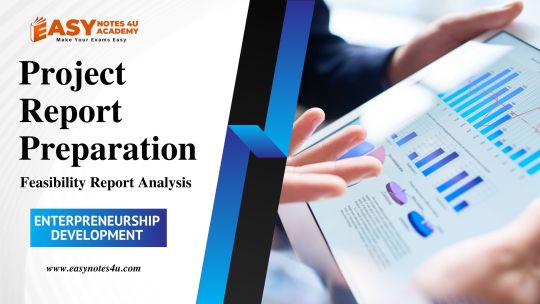
View On WordPress
#Economic Feasibility#Entrepreneurship Development#Feasibility Analysis Report#Financial Feasibility#Legal feasibility#Managerial feasibility#Marketing feasibility#Micro small and medium enterprises#Operational feasibility#Project management#Project Report Preparation#Project Report Preparation Entrepreneurship Development#Project Report Preparation for MSMEs#scheduling feasibility#Technical feasibility
0 notes
Video
youtube
Benefits for Micro & Small Enterprises under MSME Act|All about Section 43B(h)|Detailed Video
#youtube#section 43B(h)all about section 43B(h)benefits for Micro & small enterprises under MSME Actwhat is section 43B(h)section 43B(h) applicabilit#section 43B(h)#all about section 43B(h)#what is section 43B(h)#micro enterprise#small enterprise#medium enterprise#msme#applicability of section 43B(h)
0 notes
Text
Small and Medium-sized Enterprises (SME): Definition and Examples explained! Dive into the world of SMEs and their impact on business and innovation.
#Small and Medium-sized Enterprises#sme ipo#micro-cap stocks#investment plans#stock market news#risk management process#investing stocks#stock market analysis
0 notes
Text
Micro, Small, and Medium Enterprises (MSMEs) in India have been facing a multitude of challenges that hinder their growth and sustainability. From strategic planning and human resource management to leasing an office space in the right location, these enterprises come across obstacles that require effective solutions.
0 notes
Text
#MSME#MSME Day#MSME Day 2023#Indian MSME#MSME in India#Micro#Small and Medium-Sized Enterprises Day#- Micro#Small and Medium-sized Enterprises (MSME) Day#MSME HR Analytics#World MSME Day
0 notes
Link
MSME Loan Eligibility
MSME (Micro, Small, Medium, and Enterprises) Loan is a form of a business loan by which SMEs, MSMEs, and startups can avail themselves of credit. It is provided by various banks, financial bodies, or NBFCs to help a business person to fulfill their business-related expenses such as buying machinery, working capital requirements, payment of salaries and rent, raw materials, investment in fixed assets, and other daily expenses, etc.
Eligibility criteria of MSME loan
MSME (Micro, Small, Medium, and Enterprises) eligibility criteria depends on various factors such as repayment history, business turnover, age of an individual, creditworthiness, and total working experience, etc.
The age criteria of an individual are between 22 years to 60 years of age.
Business continuity of a minimum of 2 years.
Audit for 1 year by registered Chartered Accountant.
Sales or business turnover of business should be 90,000.
The enterprises that are eligible are sole proprietorships, partnership firms, private trusts, public and private companies, individuals, limited liability enterprises, proprietary concerns, services based on micro and small enterprises, manufacturing units, etc.
Ways to increase MSME loan eligibility
Pay tax on time: - It is a significant method to increase eligibility for the loan, therefore to build up the CIBIL Score, pay tax on time.
Good credit record: - Bank verifies whether the borrower has a good credit rating or avoids various credit cards, if he is maintaining a good record of rating, then it will increase your eligibility for getting the loan.
#msme(micro small medium and enterprises) loan#msme(micro small medium and enterprises) eligibility criteria#machinery loan#mudra loan#personal loan#business loan#financeseva
1 note
·
View note
Text
Recognition is growing that the development of a bioeconomy in Africa will increase the economic and social value of regionally traded, biologically based goods and services. These goods and services emanate from technologies and investments aimed at adding value to agricultural production; converting biological waste into useful material (thus promoting circular production); and connecting national, regional, and global biologically based value chains. Consequently, countries with a vibrant bioeconomy would arguably be the ones to fully participate in and benefit from the ACFTA.
Given its distributive nature, a bioeconomy will incentivize micro-, small and medium-size enterprises and the informal sector, which together make up a large part of the African economy. Therefore, African countries should develop bioeconomic clusters of innovation and entrepreneurial activities based on renewable biological resources and their unique needs and natural advantages. These efforts should culminate in what would become the African bioeconomy, connecting with the rest of the world.
Citation
Ecuru, J., & Osano, P. (2024). Making the business case for a bioeconomy in Africa, in Tadesse, G., Glatzel, K., & Savadogo, M. (Eds.), Advancing the Climate and Bioeconomy Agenda in Africa for Resilient and Sustainable Agrifood Systems. ReSAKSS 2024 Annual Trends and Outlook Report. Kigali and Washington, DC: AKADEMIYA2063 and International Food Policy Research Institute (IFPRI)
6 notes
·
View notes
Text
New Policies of Rajasthan Government Unveiled: Col Rajyavardhan Rathore
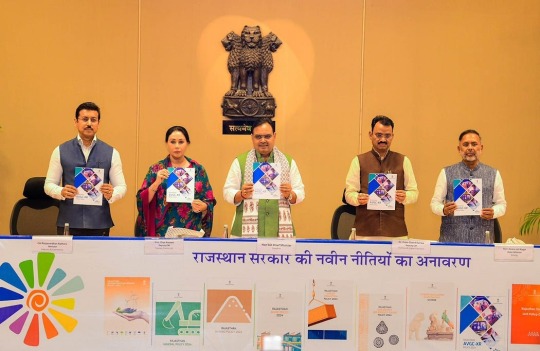
Rajasthan, known for its cultural heritage and historic prominence, is making waves with forward-thinking policies designed to usher in a new era of growth and development. Col Rajyavardhan Rathore, a dynamic leader and advocate of progress, has been instrumental in shaping and supporting these initiatives. These policies aim to address critical areas such as economic development, environmental sustainability, social equity, and digital transformation, marking a significant step forward for the state.
A Vision for Progress
The new policies reflect the Rajasthan government’s commitment to fostering innovation, inclusivity, and sustainability. By targeting various sectors, from education and infrastructure to technology and rural development, these initiatives promise a brighter and more prosperous future for all.
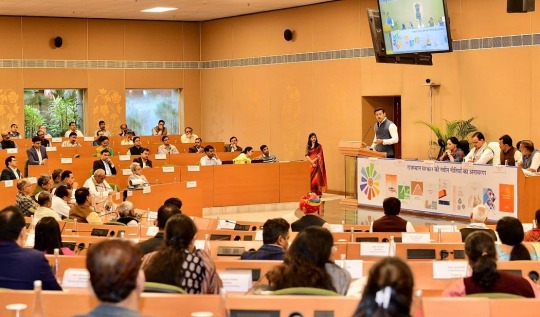
Key Policies Unveiled
1. Rajasthan MSME Policy 2024
Micro, Small, and Medium Enterprises (MSMEs) form the backbone of Rajasthan’s economy. This policy aims to:
Provide financial assistance and subsidies to MSMEs.
Simplify regulatory processes to encourage entrepreneurship.
Create employment opportunities, especially in rural areas.
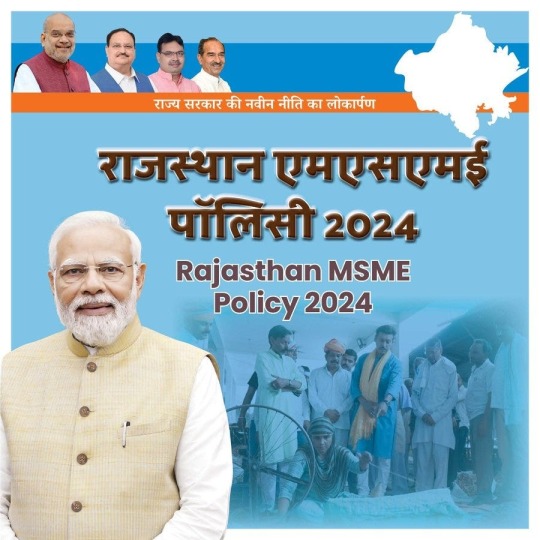
2. One District, One Product (ODOP) Scheme
To boost local businesses and crafts, the ODOP scheme promotes:
Identifying unique products in each district for focused development.
Establishing market linkages and export support.
Providing branding and marketing assistance to artisans and producers.
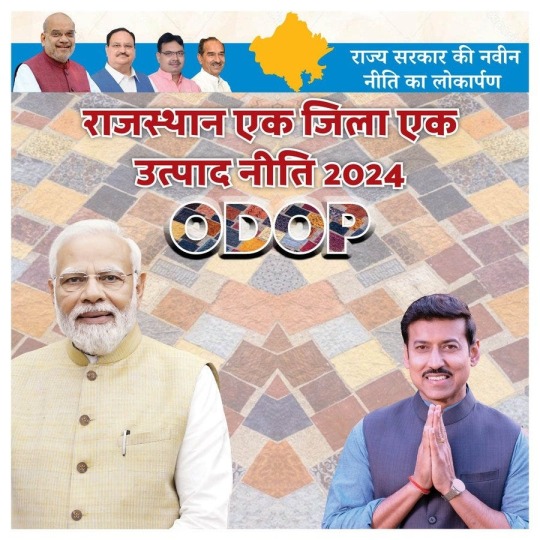
3. Rajasthan Startup Policy 2024
The state’s focus on fostering innovation is evident through its startup-friendly policies, which include:
Seed funding and incubation support for startups.
Incentives for women-led and rural-based startups.
Establishing innovation hubs across districts.

4. Integrated Cluster Development Scheme
This policy aims to modernize and empower traditional industries by:
Developing common facilities for industrial clusters.
Providing training programs for workers in emerging technologies.
Enhancing infrastructure to attract investments.
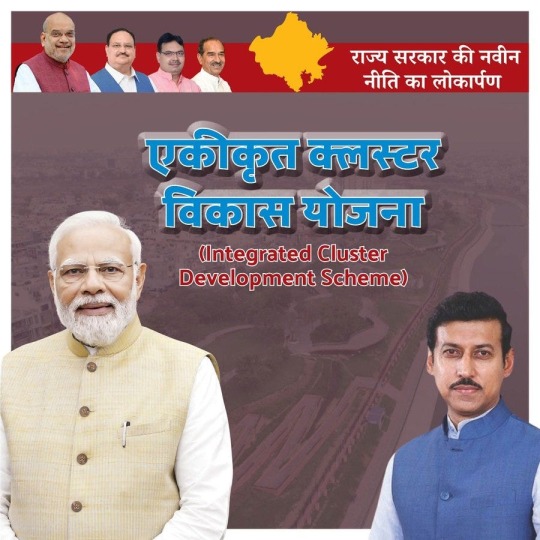
5. Rajasthan AVGC-XR Policy 2024
Focusing on the Animation, Visual Effects, Gaming, and Extended Reality (AVGC-XR) sectors, this policy includes:
Setting up AVGC-XR training institutes.
Providing subsidies for software and hardware procurement.
Promoting Rajasthan as a hub for creative industries.
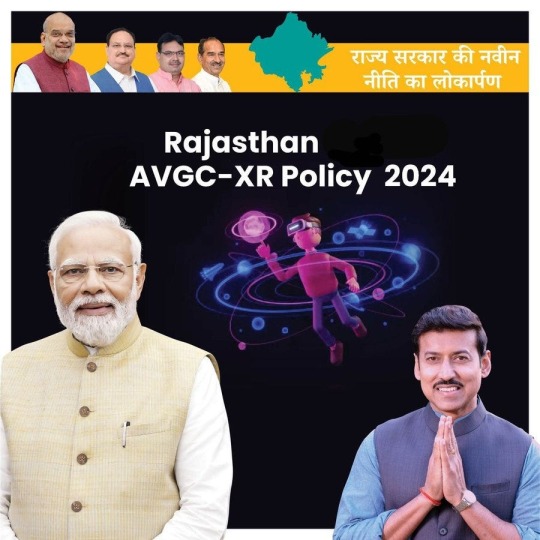
Environmental Sustainability Policies
6. Rajasthan Green Energy Initiative
To combat climate change and boost renewable energy production, the policy emphasizes:
Developing large-scale solar and wind energy projects.
Offering incentives for businesses to adopt green energy solutions.
Encouraging electric vehicle adoption through subsidies.
7. Water Conservation Policy
Addressing water scarcity in Rajasthan, this policy includes:
Promoting rainwater harvesting and groundwater recharge.
Modernizing irrigation systems to improve efficiency.
Encouraging community-driven water conservation efforts.
Social Development Policies
8. Rajasthan Women Empowerment Scheme
Aimed at promoting gender equality, this policy focuses on:
Providing skill training and entrepreneurship opportunities for women.
Ensuring safety and security through improved law enforcement.
Offering financial incentives for girls’ education.
9. Antyodaya Seva Camp Initiative
Launched to mark the successful completion of the BJP government’s first year, this program:
Provides direct access to government schemes and services.
Ensures welfare benefits reach the most marginalized communities.
Organizes awareness drives about social and economic rights.
Education and Digital Transformation
10. Rajasthan DigiSkill Program
To prepare the workforce for a digital future, this program includes:
Training in digital tools, AI, and coding for youth.
Setting up digital labs in schools and colleges.
Offering certifications in high-demand IT skills.
11. Rajasthan Education Excellence Policy
Focused on improving education quality across the state, the policy entails:
Modernizing school infrastructure and integrating digital tools.
Recruiting highly qualified teachers for rural and underserved areas.
Enhancing vocational training opportunities.
Economic Growth and Investment Policies
12. Rising Rajasthan Global Investment Summit
This annual event highlights the government’s commitment to attracting global investments by:
Showcasing Rajasthan’s potential in IT, manufacturing, and tourism.
Facilitating investor-friendly policies and incentives.
Establishing Special Economic Zones (SEZs) for key industries.
13. Rajasthan Export Promotion Policy
Aimed at boosting exports, this policy provides:
Support for exporters through subsidies and infrastructure.
Promotion of Rajasthan’s traditional handicrafts and textiles globally.
Setting up export training centers for budding entrepreneurs.
Col Rajyavardhan Rathore: A Champion of Progress
Col Rajyavardhan Rathore has been a driving force behind these transformative policies. His efforts include:
Advocating for inclusive and sustainable growth.
Encouraging public-private partnerships to enhance infrastructure and investment.
Ensuring that government initiatives are accessible and impactful at the grassroots level.
Impact of the New Policies
Economic Growth
Increased investments in key sectors like IT, renewable energy, and manufacturing.
Growth in MSMEs and startups, creating job opportunities.
Social Development
Enhanced opportunities for women and marginalized communities.
Improved access to education and healthcare.
Sustainability
Progress in renewable energy adoption and water conservation.
Reduced carbon footprint through green energy initiatives.
The Road Ahead
With these policies, Rajasthan is poised to become a leading state in innovation, sustainability, and social equity. The government’s commitment, supported by leaders like Col Rajyavardhan Rathore, ensures that this vision translates into reality. As the state charts its path forward, it sets a benchmark for holistic and inclusive development in India.
2 notes
·
View notes
Text
Rajasthan MSME Policy 2024: A New Era for Entrepreneurs by Col Rajyavardhan Rathore
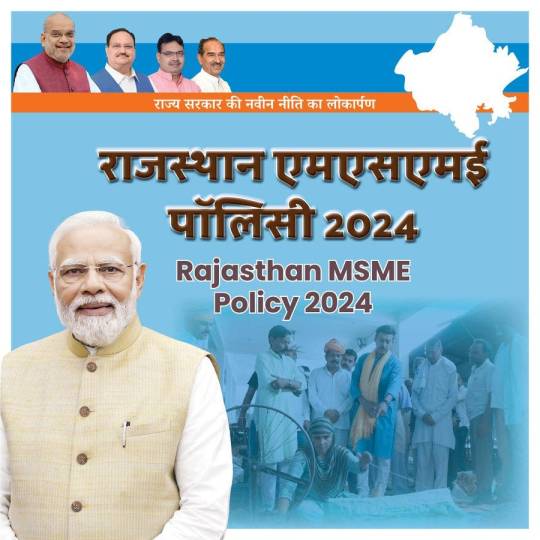
In a landmark move to empower small businesses and foster economic growth, the Rajasthan MSME Policy 2024 has been introduced under the guidance of Colonel Rajyavardhan Rathore. This policy aims to position Rajasthan as a leader in the Micro, Small, and Medium Enterprises (MSME) sector by providing robust support, financial incentives, and a conducive ecosystem for entrepreneurs.
The Importance of MSMEs in Rajasthan
MSMEs are the backbone of Rajasthan’s economy, contributing significantly to employment and GDP. With their presence in sectors like handicrafts, textiles, agriculture, and technology, MSMEs have immense potential to drive growth and innovation. The Rajasthan MSME Policy 2024 seeks to address challenges faced by small businesses and unlock their full potential.
Vision of Col Rajyavardhan Rathore
Col Rajyavardhan Rathore envisions MSMEs as engines of Rajasthan’s economic progress. Speaking at the launch, he remarked: “MSMEs are not just businesses; they are dreams of hardworking individuals. This policy is a promise to support their aspirations and make Rajasthan a hub for entrepreneurial excellence.”
Key Objectives of the Rajasthan MSME Policy 2024
Economic Empowerment: Strengthen the MSME sector to boost Rajasthan’s GDP.
Employment Generation: Create sustainable jobs across urban and rural areas.
Ease of Doing Business: Simplify processes and remove bureaucratic hurdles.
Skill Development: Equip entrepreneurs and workers with the latest skills.
Sustainability: Promote green practices and energy-efficient solutions.
Highlights of the Rajasthan MSME Policy 2024
1. Financial Support
Subsidies and Incentives: Up to 50% subsidy on capital investment for new enterprises.
Low-Interest Loans: Special credit schemes through state-backed financial institutions.
Tax Exemptions: Relaxation in GST and other state taxes for a specified period.
2. Infrastructure Development
Industrial Clusters: Development of MSME-dedicated zones in key cities like Jaipur, Udaipur, and Jodhpur.
Common Facility Centers (CFCs): Shared spaces with advanced tools and technology.
Digital Infrastructure: High-speed internet and IT support for MSMEs.
3. Skill Training and Capacity Building
Partnerships with educational institutions to introduce MSME-focused courses.
Regular workshops on digital marketing, export readiness, and quality control.
Mentorship Programs with industry experts to guide budding entrepreneurs.
4. Streamlining Processes
Single-Window Clearance: Speedy approvals for setting up businesses.
Simplified Regulations: Reduction in compliance requirements for small enterprises.
Digital Portals: Online systems for registrations, tax filing, and grievance redressal.
5. Promoting Innovation
Research and Development Grants: Funding for MSMEs working on innovative products and solutions.
Technology Adoption: Subsidies for adopting automation and digital tools.
Startup Incubation Centers: Support for MSMEs transitioning into startups.
6. Export Promotion
Global Market Access: Partnerships with trade bodies for export opportunities.
Trade Fairs and Expos: Participation in national and international exhibitions.
Export Subsidies: Financial support for logistics and international marketing.
Sectors Targeted by the Policy
1. Handicrafts and Textiles
Strengthening Rajasthan’s traditional crafts through modern techniques and marketing support.
2. Agri-Based Industries
Encouraging food processing, organic farming, and value-added products.
3. Renewable Energy
Promoting MSMEs in solar panel manufacturing and other green technologies.
4. Technology and IT
Support for tech startups and MSMEs working in AI, software, and digital solutions.
Impact of the Rajasthan MSME Policy 2024
Economic Growth
An expected 30% rise in MSME contributions to the state GDP by 2026.
Increased revenue through exports and enhanced domestic production.
Job Creation
2 lakh new jobs to be created in urban and rural areas.
Empowerment of women and marginalized communities through focused programs.
Ease of Doing Business
Simplified processes to attract 5,000+ new MSME registrations annually.
Global Recognition
Enhanced visibility for Rajasthan’s MSMEs in international markets.
Col Rathore’s Commitment to MSMEs
Col Rajyavardhan Rathore has always championed policies that drive progress and innovation. His leadership in shaping the MSME Policy 2024 reflects his belief in the entrepreneurial spirit of Rajasthan.
In his words: “With this policy, we are not just supporting businesses; we are building dreams, livelihoods, and a prosperous Rajasthan.”
A Bright Future for MSMEs in Rajasthan
The Rajasthan MSME Policy 2024 is a game-changer for small businesses. By addressing key challenges and providing holistic support, it aims to transform the state into a hub of entrepreneurship and innovation. With Col Rajyavardhan Rathore’s vision and leadership, this policy is set to empower thousands of entrepreneurs and contribute significantly to Rajasthan’s economic growth.
3 notes
·
View notes
Text
06/27/2023 is Day of Culture and Artists 🇹🇲, National Orange Blossom Day 🇺🇲, National Sunglasses Day 😎🇺🇲, National PTSD Awareness Day 🇺🇲, Micro-, Small and Medium-sized Enterprises Day

#day of culture and artists#national orange blossom day#national sunglasses day#national ptsd awareness day#micro- small and medium-sized enterprises day
0 notes
Text
Best PMEGP loan : Government Support for Starting Your Own Business.
At sharda Associates The Prime Minister's Employment Generation Programme (PMEGP) is a government scheme in India that gives financial help to individuals who want to create small companies. It aims to create jobs and encourage self-employment, particularly in rural and semi-urban areas. Here's a simplified view of the scheme

What is PMEGP?
PMEGP Loan provides financial assistance to people starting new small enterprises by offering a loan with a subsidy. The Ministry of Micro, Small, and Medium Enterprises (MSME) manages it, while the Khadi and Village Industries Commission (KVIC) oversees its implementation.
Key Features:
1 Loan Amount
Manufacturing enterprises might receive up to ₹25 lakh.
Service enterprises, such as beauty salons or repair shops, can receive up to ₹10 lakh.
2 Government subsidy:
Rural areas:
25% of general category applications.
35% for special categories (such as SC/ST, women, and those from the Northeast).
Urban areas
15% for general category applications.
Special categories are eligible for 25% off.
Who can apply?
1 Eligibility:
Any Indian citizen above the age of 18.
Applicants for projects costing more than ₹10 lakh (manufacturing) or ₹5 lakh (services) must have finished 8th grade.
Self-help groups (SHGs), cooperative organizations, and charitable trusts can all apply.
2 Personal Investments:
General candidates must invest 10% of the project cost themselves.
Special category applicants must invest only 5%.
How do I apply?
1 Application Process:\
Apply online using the PMEGP portal at Official kvic Main.
Upload documents such as ID, address verification, educational certificates, and a business plan.
2 Selection and Loan approval:
A District-Level Task Force Committee will contact you to schedule an interview.
Once approved, the bank sanctions the loan and credits the government subsidy to your loan account.
3 Repayment:
The loan must be repaid within 3-7 years, however the subsidy does not have to be paid back.
4 Training:
All PMEGP grantees are required to complete a brief company management training program.
Example of How PMEGP Loans Work
Suppose you wish to start a small manufacturing plant in a rural region for ₹20 lakh.
For those in the general category, the government will provide a 25% subsidy, amounting to ₹5 lakh.
The bank offers a loan of ₹15 lakh, and you simply need to invest ₹2 lakh from your savings.
Why is PMEGP beneficial?
project report for PMEGP loan assists people in starting enterprises without the requirement for a large initial investment. This loan is ideal for young enterprises as it requires no collateral (up to ₹10 lakh) and offers long payback terms.
Summary
The PMEGP initiative is a useful approach to start a small business with government assistance, particularly if you come from a rural or underprivileged background. It encourages employment generation and economic development. For additional information, please visit the official PMEGP website or contact your nearest KVIC office.
PMEGP: Helping You Start Your Own Business with Government Support. For details and to reach us, visit https://shardaassociates.in/ contact us : 91 79870 21896 , address : HIG B-59, Sector A, Vidya Nagar, Bhopal, Madhya Pradesh 462026
2 notes
·
View notes
Text
Government (Govt.) Policies for MSMEs | Policies & Schemes Governing MSMEs
In this article we will discuss about various Government (Govt.) Policies or Schemes governing MSMEs (Micro, Small & Medium Enterprises) – Entrepreneurship Development. Govt. Policies for MSMEs Government Govt. MICRO, SMALL AND MEDIUM ENTERPRISES MSMEs POLICIES OR SCHEMES In India, Micro, Small and Medium Enterprises (MSMEs) are governed by a range of Government Govt. policies or schemes…
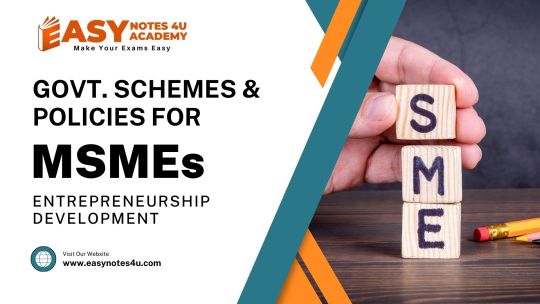
View On WordPress
#Government Policies for Micro small and medium enterprises#Government Policies for MSMEs#Government Schemes for Micro small and medium enterprises#Government Schemes for MSMEs#Govt. Policies for Micro small and medium enterprises#Govt. Policies for MSMEs#Govt. Schemes for Micro small and medium enterprises
0 notes
Text
Don’t Overpay-Get the Lowest Prices for SS 304 Flanges Today
When it comes to industrial projects, sourcing quality materials at the best price is crucial. One such essential component is the SS 304 flange, renowned for its strength, corrosion resistance, and versatility. If you're looking to procure SS 304 flanges without breaking the bank, you're in the right place! At Udhhyog, we offer SS 304 flange at the lowest price, ensuring that you can complete your projects efficiently and economically.
What are SS 304 Flanges?
SS 304 flanges are made from stainless steel 304, a widely used material known for its excellent corrosion resistance and high-temperature strength. These flanges are commonly used in various applications, including:
Chemical Processing: Handling corrosive substances without degrading.
Food and Beverage Industry: Ensuring sanitary conditions in food processing.
Pipelines: Connecting pipes in water, gas, and steam systems.
Choosing the right flange is critical to ensuring the integrity and safety of your systems, making it essential to find high-quality options at competitive prices.
Why Buy SS 304 Flanges from Udhhyog?
At Udhhyog, we understand the importance of getting quality products at the lowest prices. Here’s why you should consider purchasing your SS 304 flanges from us:
Unbeatable Pricing: We are committed to providing our customers with the SS 304 flange lowest price in the market. Our efficient supply chain and direct manufacturing processes enable us to offer competitive rates.
Quality Assurance: Quality is our top priority. Our SS 304 flanges undergo rigorous quality checks to ensure they meet the highest standards. You can be confident that you're receiving reliable products that will stand the test of time.
Diverse Selection: We offer a wide range of SS 304 flanges in various sizes and types, making it easy to find exactly what you need for your project. Whether you require slip-on, weld neck, or blind flanges, Udhhyog has you covered.
Quick and Efficient Delivery: We understand that time is of the essence in your projects. Our streamlined logistics process ensures that your order is processed and delivered promptly, minimizing any potential downtime.
Support for MSMEs: Udhhyog is dedicated to supporting micro, small, and medium enterprises (MSMEs) with flexible payment options, including a 45-day credit period. This allows you to manage your cash flow effectively while getting the materials you need.
How to Purchase SS 304 Flanges at Udhhyog
Buying SS 304 flanges from Udhhyog is a straightforward process. Here’s how you can get started:
Visit Our Website: Browse our extensive selection of SS 304 flanges to find the ones that meet your specifications.
Select Your Products: Choose the type and size of the SS 304 flanges you need and add them to your cart.
Checkout Easily: Complete your purchase through our secure checkout process.
Sit Back and Relax: After placing your order, you can relax as we handle the delivery to your designated location.
#SS304Flanges#LowestPrice#Udhhyog#AffordableFlanges#IndustrialSupplies#StainlessSteel#PipingSolutions#QualityFlanges#FlangeManufacturers#BuyFlanges#MSME#FlangeDeals#PipingIndustry#FlangeSupplier#SaveOnFlanges
5 notes
·
View notes
Text
GI Flanges Manufacture in Andhra Pradesh
Andhra Pradesh is emerging as a significant player in the manufacturing sector, especially in the production of Galvanized Iron (GI) flanges. The state's strategic location and robust industrial infrastructure have positioned it as a hub for various manufacturing activities, including the fabrication of GI flanges used in plumbing, piping, and structural applications.
The process of manufacturing GI flanges involves several critical steps, starting with the selection of high-quality raw materials. Local manufacturers often source steel from prominent steel producers to ensure the durability and strength of the flanges. The raw steel is then subjected to various processes, including cutting, shaping, and welding, to achieve the desired flange design and specifications.
Andhra Pradesh boasts several industrial estates and clusters that are specifically designed to promote manufacturing. These zones provide manufacturers with the necessary facilities and incentives to set up production units. The presence of skilled labor, along with technological advancements, plays a crucial role in enhancing the efficiency and quality of production. Manufacturers in the region utilize state-of-the-art machinery and techniques to produce GI flanges that meet national and international standards.
Furthermore, the government of Andhra Pradesh has been proactive in promoting the MSME (Micro, Small, and Medium Enterprises) sector, which includes companies engaged in the manufacture of GI flanges. Various schemes and financial incentives are available to assist small manufacturers in acquiring machinery, technology, and skilled labor. This support has contributed to the growth of the GI flange manufacturing sector in the state.
The demand for GI flanges has surged in recent years due to increased infrastructure development, including projects in construction, water supply, and irrigation. Andhra Pradesh's ongoing initiatives to enhance its industrial base and attract investments are likely to further stimulate the growth of GI flange manufacturing in the state. With a focus on quality, efficiency, and innovation, manufacturers in Andhra Pradesh are poised to meet the rising demand for GI flanges in domestic and international markets.
#GIFlanges#FlangeManufacturing#IndustrialFlanges#GalvanizedIron#ManufacturingIndia#PipeFittings#IndustrialSupply#SteelIndustry#MetalFabrication#EngineeringExcellence#AndhraPradesh#MakeInAndhraPradesh#ManufacturingHub#AndhraManufacturing#IndustrialAndhra#AndhraBusiness#InfrastructureDevelopment#PlumbingSolutions#PipingSystems#WaterSupplyProjects#ConstructionMaterials#MSMEIndia#MadeInIndia#EngineeringSolutions
2 notes
·
View notes